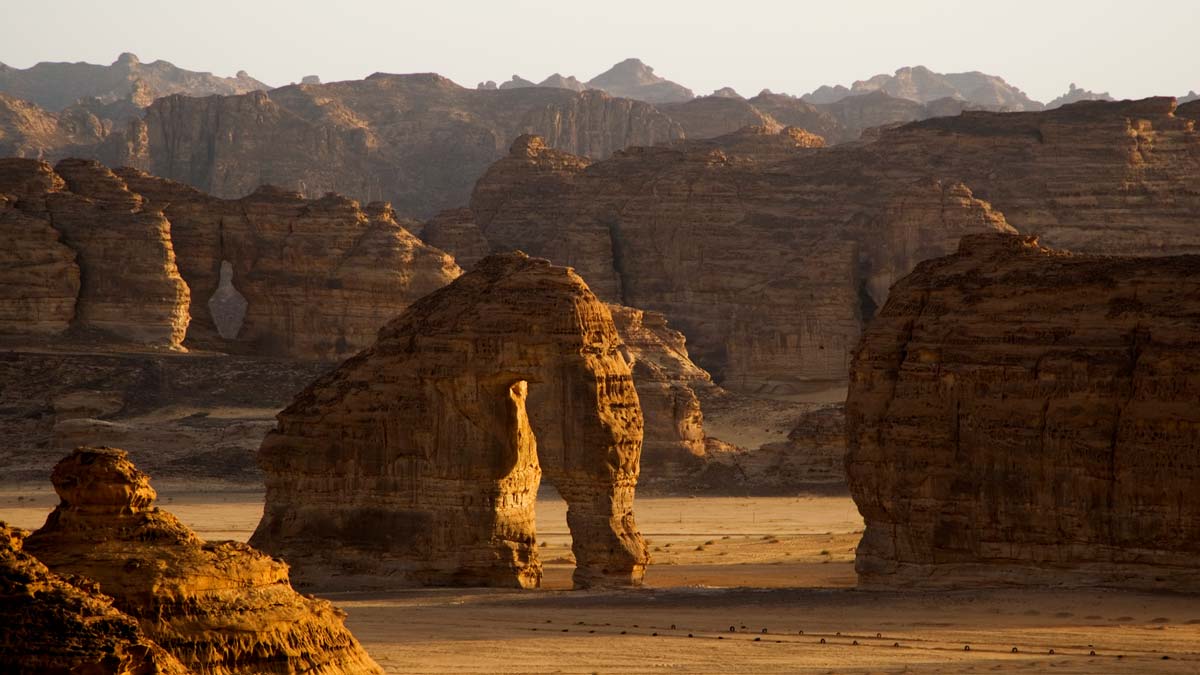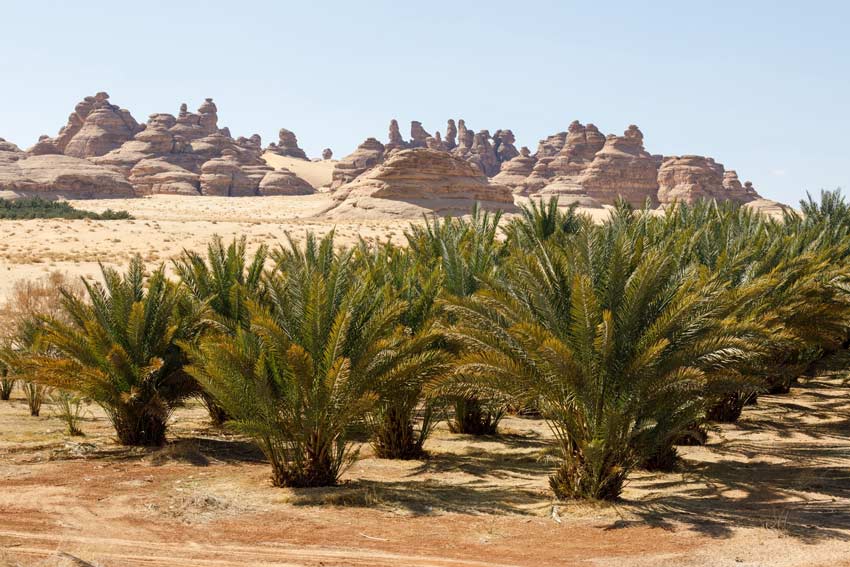Australian archaeologists discover ancient Arabian highways
18 January 2022
/Amalyah Hart
Satellite studies reveal sophistication of the Bronze-Age inhabitants of the Middle East.

Landscape near Al-Ula in northwestern Arabia. Credit: Aldo Pavan / Getty.
A team of archaeologists from the University of Western Australia has discovered a network of ancient super-highways – long-distance corridors linking oases and pastures – built by the Bronze-Age inhabitants of north-west Arabia.
“Funerary avenues were the major highway networks of their day, and show that the populations living in the Arabian Peninsula 4,500 years ago were far more socially and economically connected to one another than we previously thought,” says Matthew Dalton, lead author of the study and an archaeologist from UWA’s School of Humanities.
The research, published in the journal Holocene in December, involved taking satellite images of these avenues, which scar the countryside across an area of 160,000 square kilometres. The authors found more than 11,000 of the 17,800 “pendant” tombs found in the region were placed on these causeways, and that the highest concentration of funerary monuments on the avenues were located near permanent water sources.

Date palms growing near the modern-day oasis of Al-Ula. Credit: Frizi / Getty.
Based on the locations and pathways of the ancient highways, the team think populations used them to travel long distances between major oases like Khaybar, Al-Ula and Tayma. Lesser avenues also trail into the surrounding landscapes, which the team thinks hints at herds of domestic animals being moved to nearby pastures with the swell and flow of seasons and drought.
More:
https://cosmosmagazine.com/history/archaeology/arabian-ancient-highways/

